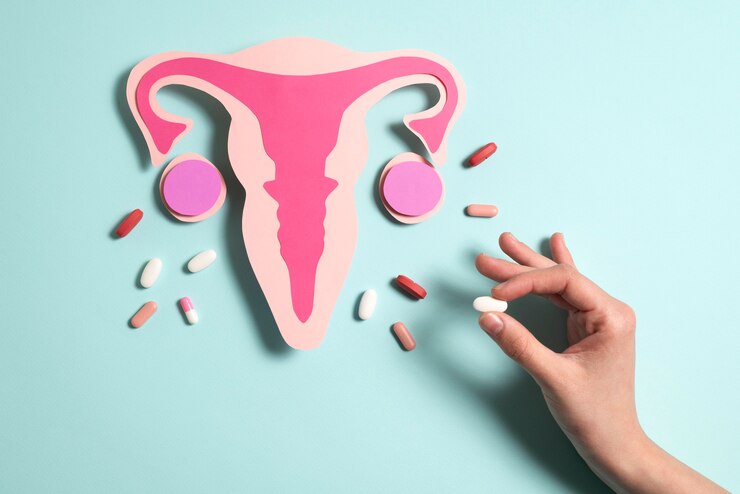Whenever someone is struggling with fertility, the first question that comes to their mind is, “Am I doing anything wrong?” The answer to this question is extremely difficult, as many factors contribute to infertility, and one of the main ones is genetic. However, genetics only load the gun; diet and lifestyle pull the trigger!
Yes, at times lifestyle choices can be the main culprit for your inability to conceive. In this blog, we would be discussing the lifestyle factors that might be holding you back from becoming a happy parent.
Age Affects Fertility
We cannot control age, but as the biological clock goes on ticking, your chances of conceiving get more challenging. As women age, the quantity and quality of the eggs start to decline. Fewer eggs are released, and the remaining ones might have genetic abnormalities. It's a misconception that women lose only one egg each month, whereas as per studies, women roughly lose around 30 eggs daily, and with high-end fertility medications from IRM, you can retrieve only a certain number of these eggs.
However, not to forget, quality is also vital, as a 30-year-old woman has around 75% of eggs chromosomally normal, while a 35-year-old woman has 50%, and at the age of 40, it's about 25%.
Men are not immune to these age-related changes. With age, the sperm quality also goes down and affects fertility. Starting a family early can impact fertility positively, and waiting until later in life can reduce the chances of a successful conception.
Weight and Nutrition Affect Fertility
Obesity and poor dietary choices might not be directly linked with fertility, but they can have a negative impact on your fertility. This is because most of the overweight and obese population make poor nutrition choices, which can potentially hinder fertility. Weight and nutrition issues are a result of lifestyle factors, and some are caused by genetics and others by medical conditions, both of which need to be approached in an appropriate manner.
We suggest you start a diet rich in antioxidants and vitamins that support reproductive health. Iron and zinc play a major role in egg and sperm development. Choose healthy fats coming from nuts, avocados, and olive oil over saturated fats—but do so in moderation.
Excess body fat affects ovulation, sperm count, and quality, which means maintaining an ideal body weight can promote reproductive health and minimize treatment complications of IVF. However, at IRM we have successfully helped overweight couples and individuals conceive through IVF. This brings us to the next part, and that is, being underweight can affect fertility to a great extent! Being underweight can disrupt hormonal balance and lead to irregular menstrual cycles, thereby minimizing your chances of conception.
Exercise Impacting Fertility
While regular exercise promotes good health, excessive workouts can disrupt hormonal balance and affect ovulation in women. IRM recommends women who are planning to conceive should limit their exercise to less than 60 minutes a day and less than 5 hours a week! On the flip side, a completely sedentary life affects fertility, as without exercise people tend to be overweight and obese, which have their own implications affecting fertility. A healthy exercise routine with aerobic and strength training workouts needs to be encouraged before, during, and even after pregnancy.
Stress and Its Effects On Fertility
While stress alone cannot lead to infertility, a long history of anxiety and depression can cause trouble conceiving naturally and even lead to complications during your IVF treatment. While this issue has not been fully studied, staying stress-free ensures better health and can help you take care of your overall being, which again can lead to increased fertility and a better chance of conceiving naturally or through IVF, whichever you choose!
Substance Abuse and Its Impact on Fertility
Certain things that go inside your body can affect reproductive health and reduce the chances of conceiving.Smoking: Cigar smoking reduces fertility in both women and men as it damages eggs, sperm, and the uterus lining and also disrupts hormonal production. We suggest if you are serious enough to embrace parenthood, consider quitting this habit!
Alcohol: As per studies in Harvard Health, women who drank more than 7 drinks a week saw a 7% reduction in chances of conception as opposed to women who do not drink at all. For the male brigade, the number stands at 9%!
Illicit Drugs: LSD, marijuana, cocaine, ecstasy, and methamphetamines severely disrupt menstrual cycles in women, and many prescription drugs are responsible for low sperm count and can lower total seminal fluid in drug users, leading to low testosterone as well.
Irregular menstruation throws the cycle off balance, affecting hormones and tingling up the fertility journey. With a low sperm count, there are reduced chances of a sperm meeting the egg. Due to these reasons, recreational drugs are best avoided when you are trying to start a family.
Change Your Lifestyle to Optimize Fertility With IRM By Your Side
Your lifestyle choices have an impact on your reproductive health. However, just blindly following a diet and exercise routine might not help. Connect with the healthcare professionals at IRM to get more clarity on your fertility journey. We understand that every individual or couple is different and offer you a customized approach towards your journey of parenthood.





